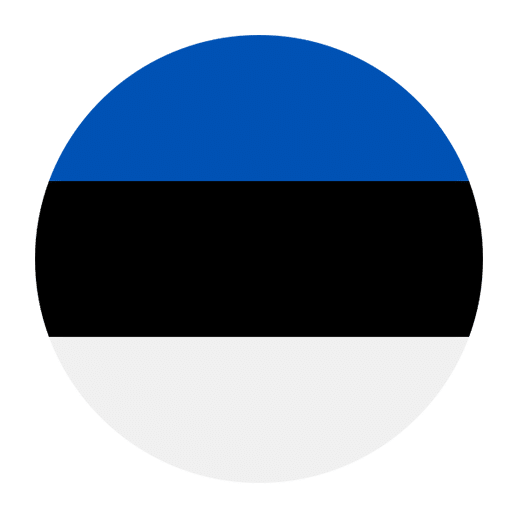Estonia, a small but vibrant country in Northern Europe, boasts a rich cultural heritage deeply intertwined with its language and traditions. Learning Estonian can be an immersive experience, especially when you delve into the nation’s holidays and celebrations. This article will guide you through some of Estonia’s most significant holidays and traditions, offering insights into the language and culture that make these events special.
Estonia’s holidays are a blend of ancient pagan traditions and modern influences, reflecting the country’s historical journey and its connection to nature. As you explore these celebrations, you’ll not only learn new Estonian vocabulary but also gain a deeper understanding of the cultural context that shapes the language. Let’s embark on this cultural and linguistic journey together.
Jaanipäev (Midsummer’s Day)
One of the most important holidays in Estonia is Jaanipäev, celebrated on June 24th. This day marks the summer solstice and is a time of great joy and festivity. Estonians gather with family and friends to light bonfires, sing traditional songs, and dance through the night.
Vocabulary to Learn:
– jaanipäev: Midsummer’s Day
– lõke: bonfire
– laul: song
– tants: dance
– sõbrad: friends
– pere: family
During Jaanipäev, it’s common to hear traditional folk songs, such as “Jaanipäeva polka” (Midsummer Polka). Participating in these activities can help you practice your Estonian listening and speaking skills. For example, you might say, “Lähme lõkke juurde” (Let’s go to the bonfire) or “Laulame jaanipäeva laule” (Let’s sing Midsummer songs).
Customs and Traditions
Lighting a bonfire is central to Jaanipäev celebrations. It is believed to ward off evil spirits and bring good luck. People also jump over the bonfire, a tradition thought to bring prosperity and health. As you immerse yourself in these customs, you can practice phrases like “Kas sa hüppad lõkke üle?” (Are you jumping over the bonfire?) and “Lõke annab head õnne” (The bonfire brings good luck).
Vabariigi Aastapäev (Independence Day)
Estonia’s Independence Day, celebrated on February 24th, commemorates the country’s declaration of independence in 1918. This national holiday is marked by various events, including a military parade, concerts, and speeches by political leaders.
Vocabulary to Learn:
– vabariik: republic
– aastapäev: anniversary
– iseseisvus: independence
– paraad: parade
– kontsert: concert
– kõne: speech
On this day, Estonians express their patriotism and pride. You can participate in the celebrations by attending events or watching them on television. Practice your Estonian by saying, “Head vabariigi aastapäeva!” (Happy Independence Day!) and “Vaatame paraadi” (Let’s watch the parade).
Historical Significance
Understanding the historical context of Vabariigi Aastapäev can deepen your appreciation for the holiday. Estonia’s struggle for independence and subsequent periods of occupation have shaped its national identity. By learning phrases related to history, such as “ajalooline sündmus” (historical event) and “iseseisvuse taastamine” (restoration of independence), you can engage in meaningful conversations about the country’s past and present.
Jõulud (Christmas)
Christmas in Estonia, or Jõulud, is a time of warmth, family gatherings, and festive traditions. Celebrated on December 24th, Christmas Eve (Jõululaupäev) is the highlight, with a special meal, gift-giving, and visits from jõuluvana (Santa Claus).
Vocabulary to Learn:
– jõulud: Christmas
– jõululaupäev: Christmas Eve
– kingitus: gift
– pereõhtu: family evening
– jõuluvana: Santa Claus
– jõulupuu: Christmas tree
Estonian Christmas traditions include preparing a festive meal with dishes like verivorst (blood sausage) and hapukapsas (sauerkraut). Engage with these customs by saying, “Valmistame jõulutoite” (Let’s prepare Christmas dishes) and “Jõuluvana toob kingitusi” (Santa Claus brings gifts).
Traditional Songs and Customs
Singing traditional Christmas songs is a cherished part of Estonian culture. Songs like “Jõuluöö” (Christmas Night) and “Oh kuusepuu” (Oh Christmas Tree) are commonly sung. Use this opportunity to practice your pronunciation and vocabulary. You can also learn about customs such as decorating the jõulupuu and lighting candles, which symbolize hope and light during the dark winter months.
Vanalinna Päevad (Old Town Days)
Vanalinna Päevad, or Old Town Days, is a week-long festival held in Tallinn, the capital of Estonia, usually in late May or early June. This event celebrates the rich history and medieval heritage of Tallinn’s Old Town, a UNESCO World Heritage site.
Vocabulary to Learn:
– vanalinn: old town
– päevad: days
– festival: festival
– keskaeg: medieval
– ajalugu: history
– etendus: performance
During Vanalinna Päevad, the streets of Tallinn come alive with medieval markets, street performances, and historical reenactments. You can immerse yourself in the atmosphere by using phrases like “Käime vanalinnas ringi” (Let’s walk around the old town) and “Naudime keskaegset etendust” (Let’s enjoy the medieval performance).
Cultural Activities
Participating in the various activities during Vanalinna Päevad provides an excellent opportunity to practice your Estonian. Whether you’re watching a historical reenactment, browsing the market stalls, or enjoying traditional Estonian music and dance, you can enrich your vocabulary and cultural understanding. Try saying, “Ostan käsitööesemeid” (I’m buying handicrafts) or “Kuulame rahvamuusikat” (Let’s listen to folk music).
Laulupidu (Song Festival)
Laulupidu, or the Song Festival, is a massive choral event held every five years in Tallinn. This festival brings together thousands of singers from all over Estonia to perform traditional and contemporary choral music. It is a powerful expression of national identity and unity.
Vocabulary to Learn:
– laulupidu: song festival
– koor: choir
– laul: song
– muusika: music
– ühtsus: unity
– esinejad: performers
The Song Festival is a deeply emotional experience for many Estonians, fostering a sense of community and pride. You can join in the celebration by attending the event or watching it online. Practice your Estonian by saying, “Osaleme laulupidu” (Let’s participate in the Song Festival) and “Kuulame koorilaulu” (Let’s listen to choral singing).
The Power of Song
The tradition of Laulupidu dates back to 1869 and has played a significant role in Estonia’s history, particularly during the Singing Revolution, which led to the restoration of independence in 1991. Understanding this context can enhance your appreciation for the festival. Learn phrases like “laulurevolutsioon” (Singing Revolution) and “rahvuslik identiteet” (national identity) to discuss the cultural significance of the event.
Head Uut Aastat (New Year’s Day)
New Year’s Day, or Head Uut Aastat, is celebrated on January 1st with fireworks, parties, and various festivities. It’s a time for new beginnings and resolutions.
Vocabulary to Learn:
– uus aasta: new year
– ilutulestik: fireworks
– pidu: party
– lubadus: resolution
– šampus: champagne
– rõõm: joy
As you celebrate the arrival of the new year, you can practice your Estonian by saying, “Head uut aastat!” (Happy New Year!) and “Teeme uue aasta lubadusi” (Let’s make New Year’s resolutions).
Celebration and Reflection
New Year’s celebrations in Estonia often include watching the president’s address on television and enjoying a festive meal with family and friends. It’s also common to set off fireworks at midnight. Embrace these traditions by using phrases like “Vaatame presidendi kõnet” (Let’s watch the president’s speech) and “Jälgime ilutulestikku” (Let’s watch the fireworks).
Conclusion
Celebrating Estonian holidays and traditions offers a unique and enriching way to learn the language. By participating in these cultural events, you can enhance your vocabulary, improve your pronunciation, and gain a deeper understanding of the customs and history that shape Estonia’s national identity. Whether you’re dancing around a Midsummer bonfire, singing at the Song Festival, or enjoying a festive Christmas meal, these experiences will bring you closer to the heart of Estonian culture.
As you continue your language-learning journey, remember that immersion in culture is a powerful tool. Embrace the holidays and traditions of Estonia, and let them guide you to a richer, more meaningful connection with the language and its people. Head õppimist! (Happy learning!)

